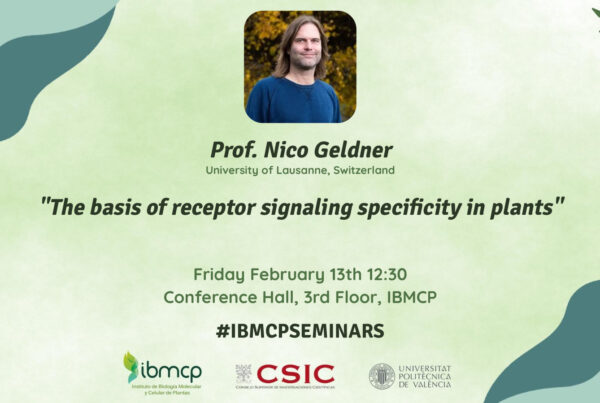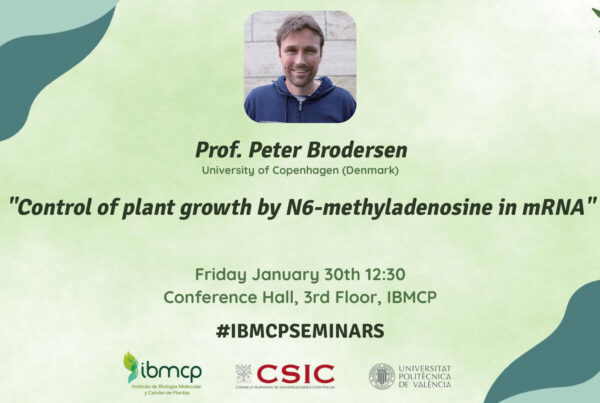Prof. George Coupland
Max Planck Institute for Plant Breeding Research, Cologne, Germany
“Florigen activation complex and its roles in floral transition and inflorescence development of Arabidopsis”
Abstract
During the induction of flowering by day length, transcription of the FLOWERING LOCUS T (FT) gene occurs in the leaf, and the FT protein is transported through the phloem to the shoot apex where it forms a protein complex (the florigen activation complex (FAC)) with the FD bZIP transcription factor and 14-3-3 proteins. We have studied the biochemistry of this complex in vivo and in vitro, identifying unexpected functions of FT and the 14-3-3 proteins. At the apex, the FAC directly activates transcription of genes leading to changes in shoot meristem morphology and stable inflorescence meristem identity. In addition, we find that after FT movement to the shoot apex, a second pattern of FT transcription occurs adjacent to axillary meristems and in the flower that is important for inflorescence development and floral organ identity. The seminar will describe the biochemistry of the FAC and its roles at the shoot meristem and in the flower.
Short Bio
George Coupland received his doctorate from the University of Edinburgh, UK, in 1984. He initially carried out postdoctoral research at the University of Cologne and the Max Planck Institute for Plant Breeding Research and in 1989 was appointed as research group leader at the John Innes Centre in Norwich, UK. In 2001 he became Director of the Department of Plant Developmental Biology at the Max Planck Institute for Plant Breeding Research in Cologne. His research group studies the molecular mechanisms controlling flowering in response to environmental cues. He was elected a Fellow of the Royal Society, London in 2007 and a Foreign Associate of the National Academy of Sciences, USA, in 2012.








